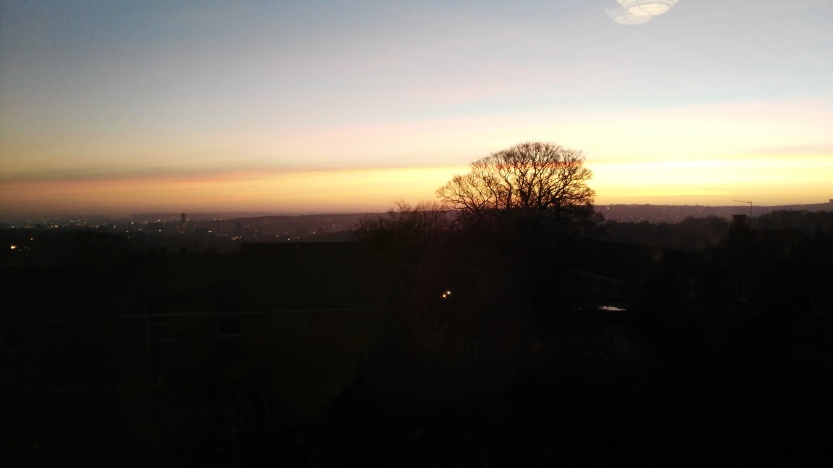 I wake to a beautiful morning over this city and ponder on how marvelous is such simple beauty. Below me stretches out a city that was for so long the context of struggles to make myself visible as an academic, to manage my conduct in such a way that I was recognisably an academic whose performances could align with my institution’s strategic interests and demands of academic normativity – what we sometimes call ‘career’.
I wake to a beautiful morning over this city and ponder on how marvelous is such simple beauty. Below me stretches out a city that was for so long the context of struggles to make myself visible as an academic, to manage my conduct in such a way that I was recognisably an academic whose performances could align with my institution’s strategic interests and demands of academic normativity – what we sometimes call ‘career’.
For much of my time here, though, beauty was not a word I could use to describe what it meant to perform in relation to academic normativity. Such dawns as pictured above were absent from my vision. Instead I experienced a growing existential dislocation, an intense sense of distance from any notion of authenticity. This was not all the fault of academia. Certainly not. But none of us, NONE OF US, are simply and wholly just academics. We are PEOPLE. And it is this lack of respect for us as human, as people with lives, loves, passions, hopes and desires that often characterises working life. The decisions I made to organise my life in relation to academic normativity, while in many ways quite distinct and different from many of my colleagues, was also not so unusual. Lives stretched out across locations; absences from family life; issues not spoken about – are these not also common to many academic lives?
At this moment this lack of humanity in much academic life presents itself starkly to me today. It is four years (February 14th 2012) since I collapsed into mental crisis and distress. It is quite miraculous that I have been able to see but one more morning, let alone many. And it is such a coincidence that I should mark this anniversary in the city and the institution that formed the backdrop to my crisis.
I met with a colleague here, who I did not know at the time, who asked me how the institution responded to my crisis. I reported, truthfully, that it was very supportive. And it was. I was given all the time I needed, and informed clearly of what needed to be done at different stages. I did make reference to a kind of institutional invisibility though. I didn’t expand on it them but wish to do so now.
In a very strong way it is as if I had never worked here and had never experienced such distress. It is as if what I experienced was purely personal and was not what Barbara Jago calls ‘academic depression‘. How does this invisibility manifest itself? None of the people who were closest to me in my professional life here have ever actively sought to inquire into how I am. I find this quite odd. Two, and only two, people do. But they were not people who I was most involved with professionally. These two people have responded with simple and powerful humanity. I often wonder why those others are silent. What prevents them from acting humanely? How have I become so invisible to them? How is it possible for such astounding silence when many of them know I am here this week?
Many people who face mental distress and anguish experience such invisibility. It is not just that it is less noticeable compared to physical disability. Age old discomfort with the mad carries on in our ‘modern’ times, as if our distress carries some stain of evil, or is a mark of personal weakness. We appear to carry a social stigma, best responded to with avoidance, distance, INVISIBILITY.